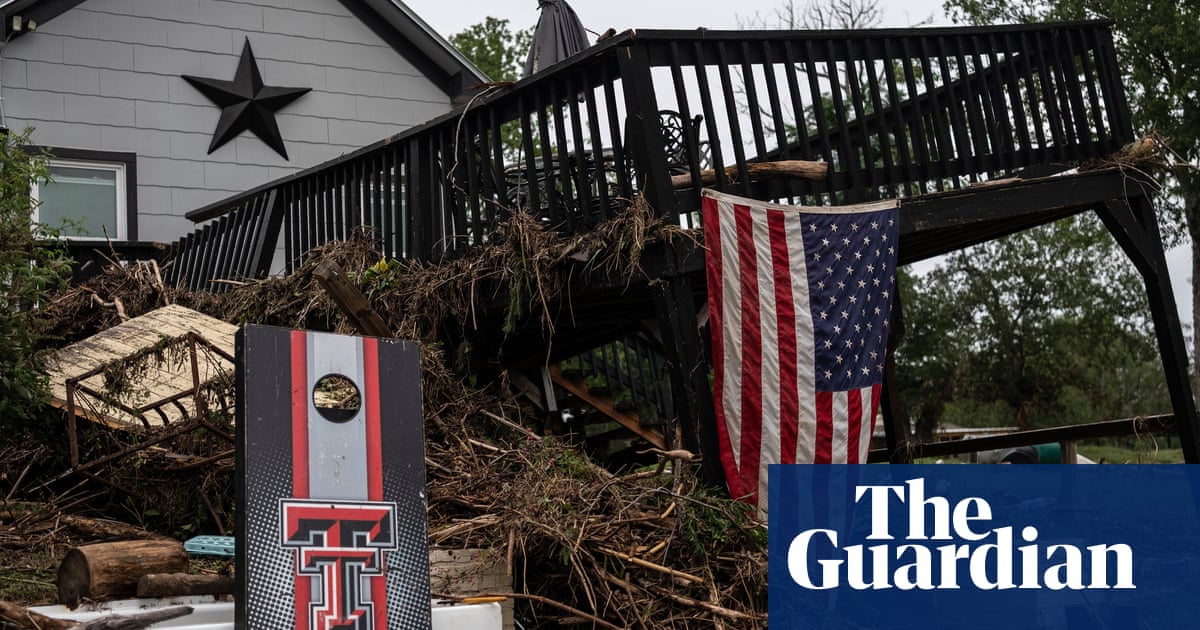Catastrophic Floods in Texas: A Political and Human Tragedy
The United States finds itself grappling with the aftermath of devastating floods that have claimed the lives of over 100 individuals in Texas, including 27 children and staff from an all-girls Christian camp. As search and rescue operations continue, the political ramifications of this disaster are unfolding, revealing a complex tapestry of blame, responsibility, and the intersection of policy and tragedy.
A Call for Investigation
In the wake of this catastrophe, Democratic leaders are demanding an investigation to determine whether recent budget cuts at the National Weather Service (NWS) hampered its ability to provide accurate forecasts. These cuts, implemented under the previous administration, have left many questioning whether the NWS had the necessary resources to warn the public effectively about the impending dangers posed by the floods.
Political Responses: Praise and Denial
As rescue efforts unfold, Republican leaders have been quick to highlight the federal assistance provided by former President Donald Trump. They praise his actions, which they argue have been crucial in mobilizing resources for recovery. However, they have largely sidestepped any discussion regarding the implications of his administration’s policies, particularly cuts that critics say have undermined the NWS’s capabilities.
Rick Wilson, co-founder of the anti-Trump Lincoln Project, criticized this reluctance among Republican leaders, suggesting their primary focus has shifted from addressing the needs of their constituents to avoiding conflict with Trump. He remarked, “Their thoughts are how do I avoid making sure that Donald Trump doesn’t look at me as an enemy or a critic?” This sentiment underscores a growing concern about the party’s direction amid unprecedented challenges.
The Human Toll of Political Action
The flash floods, described as some of the worst the U.S. has seen in decades, wreaked havoc on homes and camps in central Texas before dawn on a recent Friday, pulling individuals from their shelters and sweeping them away in the tumult. Eyewitness accounts paint a harrowing picture of survivors clinging to trees as the waters rose, while authorities continue to search for those still missing.
Amid the catastrophe, Governor Greg Abbott expressed gratitude to Trump for the federal disaster declaration, which he believes will facilitate a more robust response to the emergency. Meanwhile, other GOP leaders, such as Kristi Noem, have echoed similar sentiments, attributing positive changes within the NWS to Trump’s leadership.
Deflecting Accountability
Trump has also sidestepped questions surrounding whether he plans to phase out the Federal Emergency Management Agency (FEMA), choosing instead to characteristically deflect any responsibility onto the Biden administration. “That water situation… that was really the Biden setup," he stated. His comments reflect a continued effort to frame the narrative around natural disasters as detached from human governance or policy decisions.
Questions About Preparedness
As scrutiny mounts, Texas officials have criticized the NWS for seemingly inadequate warnings about the floods. The forecasting agency, however, defended its actions, stating it had deployed additional forecasters over the holiday weekend to manage the situation. Nevertheless, questions remain about staffing vacancies at the NWS’s San Antonio office—a role that has been unfilled since earlier this year—raising concerns about the potential impact on forecasting accuracy.
Democratic leaders, including Chuck Schumer, have pressed the acting inspector general of the commerce department to investigate whether these vacancies contributed to delays or inaccuracies in predictions about the flooding.
A Divide in Political Sentiment
The political landscape surrounding this disaster reflects a broader divide in how crises are addressed by different parties. Republicans have often been criticized for their tendency to offer “thoughts and prayers” in the face of tragedy, showing a similar pattern of distancing themselves from the root causes of disasters, whether natural or human-made. The concept of the climate crisis, often avoided in political discourse, continues to loom large, as many believe it risks igniting a discussion that could implicate current policies.
Repercussions for Political Alliances
With the mounting political tension, analysts predict that Republicans may eventually face backlash for their unyielding allegiance to Trump. Political scientist Larry Sabato suggests that while Trump may remain insulated from the criticism, congressional members from competitive districts—who actively supported budget cuts perceived to weaken emergency services—could suffer at the polls.
As the narrative of this tragic event continues to unfold, the consequences of decisions made in Washington will loom large over the recovery efforts in Texas, revealing the intricate connections between policy, governance, and the lives affected by natural disasters.


